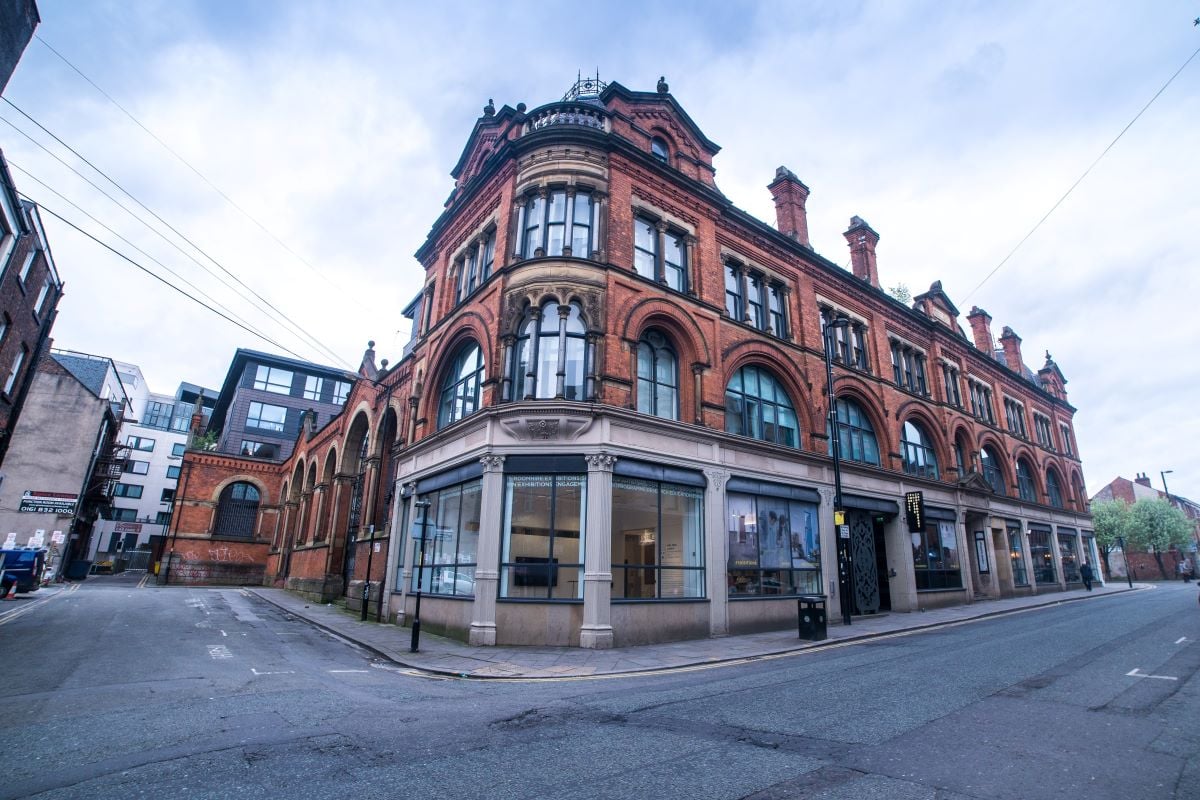
Photo: Arthur Siukstra
Gallery plagued by racism accusations relaunches
Centre for Chinese Contemporary Art relaunches as 'esea contemporary' following critical audit that found it had lost sight of its mission and purpose.
An Asian art gallery in Manchester that was rocked by accusations of racist attitudes has relaunched with a new name and ethos.
The move to rename the Centre for Chinese Contemporary Art (CFCCA) as "esea contemporary" follows an extended closure of the venue for redevelopment and "re-envisioning" of the way the organisation is run.
In 2021 the institution vowed to change after an audit found that it fostered "a culture of disharmony and mistrust" through poor management and an unwillingness to address complaints of institutional racism.
READ MORE:
- Call to defund arts centre after board quashed 'futile' revisioning project
- White-led Chinese art gallery vows to change
At the time of the audit just one of CFCCA's seven staff was of Chinese heritage, with the report stating that the lack of representation damaged morale and engagement with the wider artistic community, as leaders suffered from "low cultural competency".
It added that the centre had lost sight of its mission, value and purpose.
'Significant change'
Speaking to Arts Professional, esea contemporary's director Xiaowen Zhu, who joined in June 2022, said work to change the organisation began with her predecessor, interim director Thanh Sinden, who was appointed in 2021 and recruited a number of new board members.
"Of the board of eight trustees, six of them now come from East and South East Asian cultural backgrounds," Zhu says.
"That's a very significant change compared with the previous structure."
Zhu said that, upon joining the organisation, she set about speaking to artists involved with the centre to understand their experiences and began a process of engagement with the wider community to help define its purpose.
"I knew about the challenge and the criticism the centre faced before because it was big news, especially for our community," she says.
"I think anyone who works in East and South East Asian contemporary art knew about it. When I met with the artists I felt their frustration and hurt feelings.
"During Covid everyone was so isolated [and] it felt that those artists had been holding onto those frustrations and feelings and were just waiting for the moment that they could really burst out and just tell someone about it. I became that person.
"It helped me understand that this is not just a job – it's a project. Because it's a charity that mainly receives public funding, we have a very big responsibility and we need to fulfil a sense of purpose for our community."
'Attentiveness and passion'
Zhu said the focus of the organisation is now about being both led by, and working with, people who have lived experience of East and South East Asian cultural backgrounds.
"That doesn't mean we exclude anyone based on ethnicity. There may be people [we work with] who didn't grow up with this heritage but, for example, they studied East Asian art history, or lived in Asia for a number of years and worked extensively with Asian artists. All of that really matters.
"We wanted to regenerate the soul of this organisation and run things with care, attentiveness, and passion.
"I think artists can tell if an organisation, especially this new organisation, has a soul or not. I really think that's a crucial part of it."
Alongside new internal policies on inclusiveness, the institution ran a range of workshops and focus groups with people from the community last year – including artists, curators, people running businesses in the area, and education settings – to help define its future identity and vision.
Despite the renewal and re-envisioning work, the organisation was able to successfully retain its status within Arts Council England's National Portfolio, with Zhu crediting ACE with a significant role in its transformation.
"We feel very supported by Arts Council England, because I think in the past two years we had monthly meetings with our relationship manager," she says.
"I wasn't involved with all of those, but those meetings were very crucial. It was like having someone guiding you, supporting you and coaching you. I think we couldn't have achieved [NPO status] without those meetings.
"It is hard work that all goes on in the background. Nobody sees it but hundreds of hours went into all those processes, rebuilding the governance and the confidence of the organisation to push forward."
The venue reopens to the public on 18 February with the first exhibition of its 2023 programme, "Practise Till We Meet", curated by Hanlu Zhang, which will showcase five artists and two collectives.
Join the Discussion
You must be logged in to post a comment.